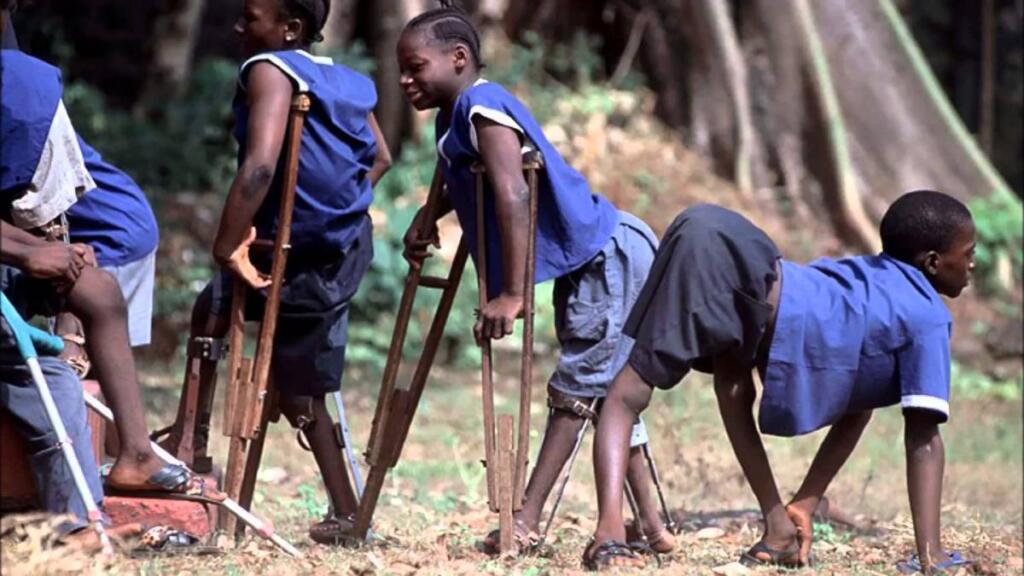As conflict ravages Gaza, a variant of the poliovirus has been identified in the region. Six sewage samples from Khan Younis and Deir al Balah, collected in late June, revealed the presence of the virus.
Polio infections typically do not show symptoms. However, a small percentage of those infected can develop paralytic polio, a severe form leading to paralysis. No paralytic polio cases have been reported in Gaza yet, but the virus’s presence in wastewater is alarming.
Types of Polio
Historically, polio cases were mostly due to “wild poliovirus.” This virus affected both poor and wealthy nations for centuries. Effective vaccines introduced in the 1960s significantly reduced polio cases in countries that could afford them.
The Global Polio Eradication Initiative, launched in 1988, helped provide more equitable vaccination worldwide. By 2023, wild poliovirus caused only 12 paralysis cases, confined to Pakistan and Afghanistan.
As wild poliovirus cases declined, vaccine-derived poliovirus cases increased. There are two types of polio vaccines: oral and injectable. The oral polio vaccine uses a weakened virus that can still reproduce. Vaccine-derived poliovirus occurs when vaccinated individuals excrete the virus, which then spreads and mutates, potentially causing paralysis in populations with low immunity. In 2023, there were 524 polio cases in 32 countries caused by vaccine-derived poliovirus, including the type 2 strain found in Gaza’s wastewater.
High Vaccine Coverage Isn’t Enough
Eradicating polio, whether wild or vaccine-derived, hinges on high vaccine coverage. This is measured by the percentage of children under five who have received at least four doses, ideally reaching 95 percent.
High vaccination coverage results from routine childhood immunizations and catch-up campaigns in areas where the virus is found. However, even high coverage doesn’t always eliminate the virus.
In the early 2000s, India and Nigeria had the highest polio cases worldwide. Despite high vaccination rates in India by 2007, cases persisted in impoverished areas of western Uttar Pradesh. Poor sanitation hindered the oral vaccine’s effectiveness and facilitated virus spread. A sanitation and hygiene project in 2007 eventually led to the last polio case in Uttar Pradesh in 2010, and India was declared polio-free in 2014.
Gaza eradicated wild polio over 25 years ago. However, the re-emergence of vaccine-derived poliovirus may be linked to poor hygiene and sanitation combined with reduced vaccine coverage.
Polio vaccination coverage in Palestinian territories was 99 percent in 2022 but dropped to 89 percent by 2023. This data, however, doesn’t distinguish between the West Bank, East Jerusalem, and Gaza, suggesting lower coverage in Gaza.
Recent Outbreaks
In early 2022, a similar poliovirus strain was detected in wastewater in Jerusalem, London, and New York. These cities have large populations of ultra-Orthodox Jews, who may have lower vaccination rates. In Rockland County, near New York City, a young, unimmunized Orthodox Jewish man became the first U.S. polio case in 30 years.
There is no evidence of vaccination hesitancy among Ultra-Orthodox Jews in Australia. Nonetheless, other communities, such as those in Northern Rivers, New South Wales, have low vaccination rates and are at risk for diseases like polio.
The Source of the Virus
Since Gaza’s oral vaccine hasn’t included type 2 poliovirus since 2016, the virus must have come from outside. In 2023, type 2 vaccine-derived poliovirus outbreaks occurred in the Democratic Republic of Congo, Yemen, Nigeria, Sudan, and Somalia, with one case in Egypt, which borders Gaza. Egypt might be the virus’s source, but further investigation is necessary. Israel is an unlikely source, as it has had no poliovirus detections since 2022.
Global Implications
Poliovirus can cross borders, making high vaccination rates essential for protection. Containing the virus within Gaza is crucial. UNICEF and partners are preparing a vaccination campaign targeting young children. Maintaining wastewater surveillance for polio is also vital as it provides an early warning system, prompting public health action before symptomatic cases emerge.
Lastly, this situation highlights the urgent need to cease hostilities and ensure aid agencies can improve clean water, sanitation, and health services throughout Gaza. This is a global health priority that must be addressed immediately.
ALSO READ: Pakistan seems more interested in India’s Internal Matters rather than Fighting their own Problems
